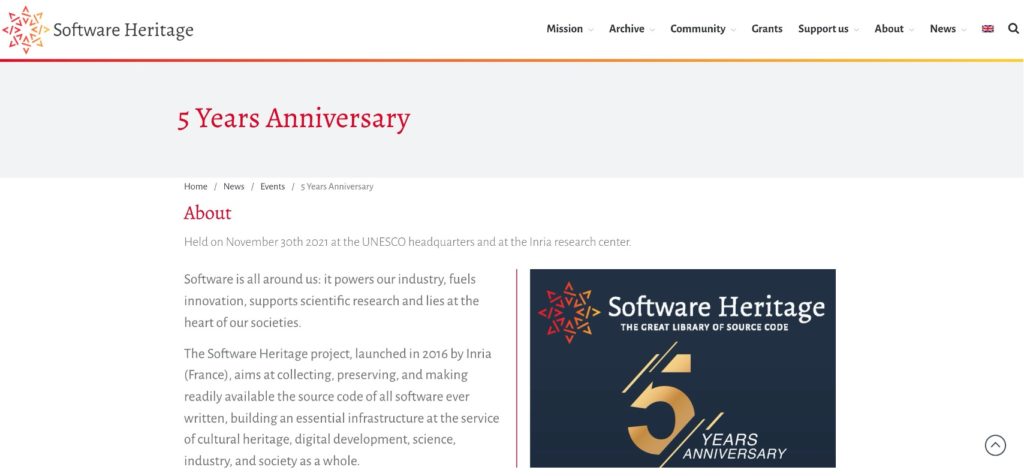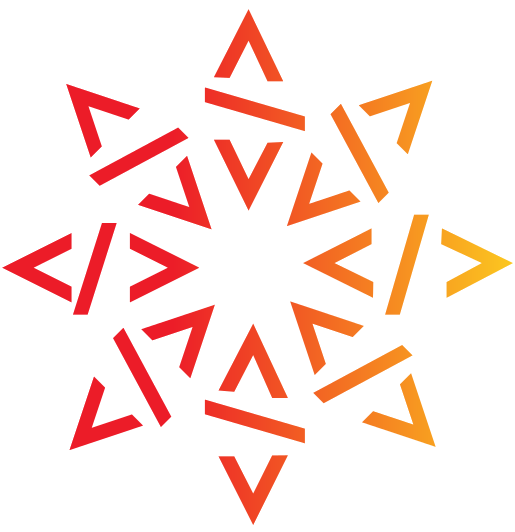The Software Heritage 5 years anniversary event page is here!

On November 30th 2021 we celebrated the fifth anniversary of Software Heritage at Unesco‘s headquarters in Paris. This was a special day, and marked the birth of the Sofware Heritage International Conference, where our growing international community came together: we had a rich program that covered the multiple facets of Sofware Heritage, with high-level personalities, sponsors, ambassadors, grantees of the Alfred P. Sloan and NLnet foundations, many expert contributors and various organizations and individuals that share our vision.
Unveiling the SWH5YEARS dedicated web page.
We have collected, curated and made available a wealth of material from the event, that you can now easily find in a single place, the SWH5YEARS dedicated web page.
You will find the presentations from the morning plenary session where the major dimensions of relevance to the Software Heritage archive were discussed: Open Science; Preservation, Culture and Education; Innovation for industry and administration. You will also find the presentations from the community meeting that took place in the afternoon at Inria, in Paris.
All the slides of the presentations are available, as well as the videos: It is like you had been there!
If you want to be part of this great adventure, you are welcome to come onboard, there is a lot to do: take a look at the different sponsorship program possibilities, regularly check out the job offers, consider becoming an ambassador, foster adoption in academia, help recover landmark legacy software and its stories, donate for the fundraising campaign, or simply spread the word.
And remember to subscribe to our newsletter, Twitter and LinkedIn account to get the news!
